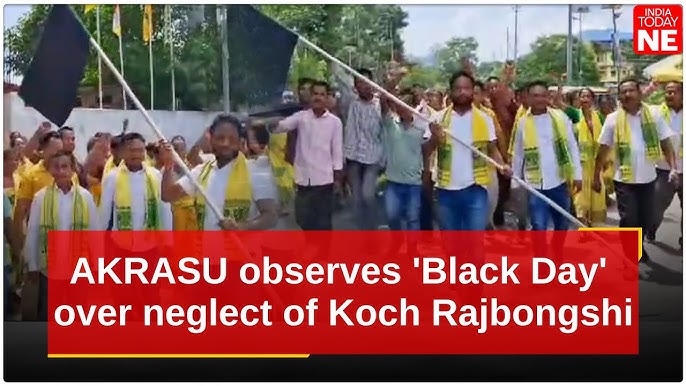Himanta Biswa Sarma, the chief minister of Assam, has recently voiced grave worries over the increased monitoring of Champai Soren, a well-known political figure in the area. This development occurs during a critical period of major political transitions in the state. Sarma’s comments draw attention to the conflicting political dynamics and the effects of heightened scrutiny on key figures in the state’s political system.
Context of the Surveillance
Champai Soren, a well-known political leader from the Jharkhand Mukti Morcha (JMM), has been under the radar of surveillance agencies, a situation that has raised alarms among his supporters and political allies. The surveillance appears to be part of a broader investigation into political and administrative activities amid ongoing political changes and power shifts in Assam and neighboring regions.
Soren is under increased scrutiny at a time when Assam is negotiating a number of challenging political situations, such as impending elections, changes in party affiliations, and important administrative choices. A layer of controversy has been added, and the increasing surveillance of political personalities such as Soren has become a central topic in political discourse.
Chief Minister Himanta Biswa Sarma’s Concerns
In a recent statement, Assam Chief Minister Himanta Biswa Sarma voiced his apprehensions about the implications of the surveillance on Champai Soren. Sarma expressed concerns that such actions could undermine the democratic process and political stability during a time of transition. He emphasized that while law and order are crucial, it is equally important to ensure that political activities are not unduly hindered by excessive scrutiny.
Sarma’s comments reflect his broader concerns about maintaining a fair and transparent political environment. He has called for a balanced approach to surveillance and investigation, one that respects democratic norms and does not interfere with the political rights and activities of individuals.
Political Implications
There are major political ramifications for Assam and the larger regional political scene from the surveillance on Champai Soren. Being an essential player in Jharkhand politics, Soren has contacts and influence outside of his state. The examination of his actions may have repercussions for alliances and political relations between states.
For the ruling party in Assam, the situation presents a complex challenge. On one hand, maintaining law and order and investigating potential issues are essential responsibilities. On the other hand, ensuring that political figures are not subject to undue interference is crucial for preserving democratic processes and public trust.
The opposition parties in Assam and neighboring states have seized upon the surveillance issue to criticize the current administration. They argue that the increased monitoring of political figures could be an attempt to suppress dissent and control political narratives during a period of transition. This criticism has further polarized the political discourse and added to the tensions surrounding the issue.
Reactions from Political and Public Figures
Reactions to the surveillance on Champai Soren have varied widely among political leaders and the public. Supporters of Soren view the surveillance as a politically motivated move aimed at discrediting him and his party. They argue that such actions could undermine democratic principles and hinder the ability of political leaders to engage with their constituencies.
Conversely, some advocates for increased transparency and accountability in politics see the surveillance as a necessary measure to ensure that political activities are conducted within legal and ethical boundaries. They emphasize the need for thorough investigations and accountability, particularly in cases where there are concerns about potential misconduct.
Balancing Security and Democracy
As the political transition in Assam unfolds, finding a balance between security and democratic freedoms will be crucial. The surveillance of political figures like Champai Soren underscores the need for a transparent and accountable approach to political oversight. Ensuring that investigations are conducted fairly and without political bias is essential for maintaining public trust and democratic integrity.
The Assam government, along with other stakeholders, will need to navigate this complex situation carefully, addressing concerns about political interference while upholding the principles of democracy and justice. Effective communication, transparency, and adherence to democratic norms will be key in managing the political transition and addressing the challenges posed by increased surveillance.
Assam Chief Minister Himanta Biswa Sarma’s concerns over the surveillance on Champai Soren highlight the delicate balance between maintaining law and order and preserving democratic freedoms. As Assam faces a period of political transition, the focus must remain on ensuring that political activities are conducted fairly and without undue interference. The outcome of this situation will have major implications for the state’s political environment and democratic processes.


